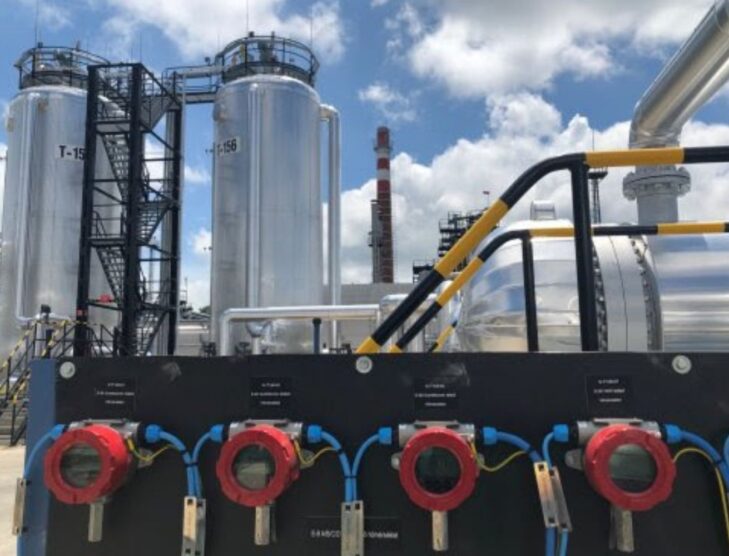
MOL completes new rubber bitumen plant in Zalaegerszeg
The rubber bitumen plant at MOL’s Zala Site, representing an investment of around USD 10 million has been completed. The facility, built in one year, is capable of producing 20,000 tons of rubber bitumen annually. As well as recycling 8-10% of Hungarian domestic tire waste, the new plant will contribute to the efficient operation of the Zala Site and to the preservation of more than 100 jobs.
3,000 tons of rubber scrap per year is used to produce rubber bitumen through the recycling of about half a million used tires, about 8-10% of the annual domestic tire waste. The new plant can produce about 96 tons of rubber bitumen per day; annually this translates into 20,000 tons of raw material for road construction, enough to construct a new 2×1 lane 200 km highway or to refurbish the upper layer of 600 km of a 2×1 lane highway.
In 2012, MOL opened and successfully operated a pilot plant for rubber bitumen with an annual capacity of 5,000 tons at the Zala Site. In response to increased demand, MOL started building a new plant in the spring of 2019. The plant was completed in just over a year and, despite the Covid-19 pandemic, continued to be built with the appropriate precautions in place. It is an important achievement that no working days have been lost during the project implementation.
“The 96 tons per day capacity is sufficient to meet the demand for bitumen for larger volumes of road construction works. What’s more, this amount also provides the possibility to exploit new business opportunities in surrounding countries. With chemically stabilised rubber bitumen being a MOL patent, the sale of the license could be an additional utilisation opportunity, for which the new plant serves as an excellent example. In the last eight years, about 150 km of road sections have been built or refurbished in Hungary using rubber bitumen, which can now increase in volume due to the newly added production capacity. The production of 20,000 tons covers about 10-15% of the domestic bitumen demand. MOL Group is aiming to establish itself as the market leader for recycling in Central and Eastern Europe, on the way to deliver on the company’s “Enter Tomorrow 2030” strategy, the completion of this new plant is another building block on our way,” said Tibor Zsinkó, vice president, MOL Hungary Downstream.
All the necessary conditions are in place for rubber bitumen roads to become more and more widespread. Hopefully, this will result in road conditions improving noticeably in the long run, as the excellent adhesion of the rubber bitumen to minerals reduces the chances of pot-holes forming and its higher load capacity will result in a lower likelihood of ruts appearing. Around residential areas, it can be an important consideration for construction companies to use this to achieve significantly lower levels of traffic noise, reducing environmental noise pollution.
Of the USD10 million investment, 75% was provided by MOL from its own resources, and 25% was financed through state aid within the framework of the Large Enterprise Investment Support Program.
About the Zala Site
The Zala Site is located about 200 kms southwest of Budapest, the capital city of Hungary. MOL has been producing hydrocarbons in the Zala Region for more than 80 years. For more than 50 years, MOL has also had refining activities in the region, which resumed in 2001. The former Zala Refinery was turned into a bitumen hub and serves as the production unit of regular, polymer-modified and rubber bitumen.
About MOL Group
MOL Group is an integrated, international oil and gas company, headquartered in Budapest, Hungary. It is active in more than 40 countries with a dynamic international workforce of 25,000 people and a track record of more than 100 years in the industry. MOL’s exploration and production activities are supported by more than 75 years’ experience in the hydrocarbon field. At the moment, there are production activities in nine countries and exploration assets in 14 countries. The MOL Group operates three refineries and two petrochemical plants under integrated supply chain management in Hungary, Slovakia and Croatia, and owns a network of 1,933 service stations across 10 countries in Central and South Eastern Europe.









